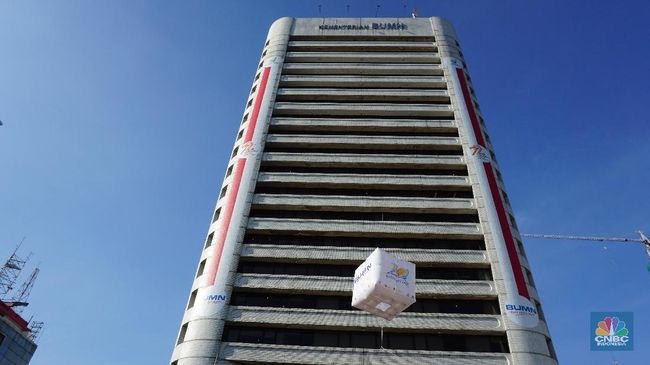Board of directors of Engie, of which the state holds around 22%, decided on Monday evening to sell its 29.9% stake in Suez to Veolia, which had raised its offer to a price significantly higher than that of the market. Two state officials voted against the sale and another abstained, according to corroborating sources.
The president ofEngie Jean-Pierre Clamadieu said to himself very satisfied
, in an interview with World, an operation that would allow it to invest in renewable energies.
Engie is not a public company, although the state enjoys a strong influence there. Monday evening, we serenely noted our difference in appreciation
, he explained.
> READ ALSO: The day after the sale of part of the capital, Suez denounces “serious anomalies” in a letter addressed to Le Maire
On the side of government, while the Minister of the Economy Bruno the Mayor has worked tirelessly to reconcile points of view, we also highlight respect for the governance of Engie, a private company, and we ensure that confidence in its management is maintained.
Not to mention that the amount of Veolia’s offer, with a share price significantly higher than it was before the transaction was announced, is enough to satisfy the State shareholder.
There is a duplicity or serious bankruptcy of the shareholder State
, estimated the deputy PS Boris Vallaud, considering that the government should ask itself the question of confidence in the governance of Engie
, in particular towards Jean-Pierre Clamadieu, appointed with the support of the State.
“A grandfather that we no longer listen to”
We are still in an extreme situation, where the State, the main shareholder of a company, shows a very clear orientation […] and he is disowned
, also notes the economist Elie Cohen.
He also notes that if the belligerents were a few inches from a chord
, as Bruno Le Maire said on Tuesday morning, the minister’s duty was to get more involved and bring this solution to fruition
.
Veolia, Suez and Engie: There we have three large companies among the 85 first French, the State is legitimate to give a political opinion. But he didn’t really do it
, by not giving notice on the strategies presented
nor on the interest of this merger
, estimates with AFP Pierre-Yves Gomez, director of the French Institute of corporate governance.
The State, no longer wishing to intervene in political terms, has relatively little weight as a shareholder. Finally things seem to be done without him
, explains this economist who compares public power to a grandfather we don’t listen to much
.
Because if Engie’s attitude can be explained by its strategy and the absence of an alternative to find another buyer, Who is interested in the common good, the global image and the industrial restructuring to which this leads? It was the role of the state
, insists Pierre-Yves M. Gomez.
For Elie Cohen, however, if this situation is indeed unprecedented, it is more the consequence of circumstances unfavorable to the State.
Define a “doctrine”
While the government has long expressed its intention to disengage from Engie, the crisis has prevented it from doing so and it finds itself forced to get involved in a poisoned social and political issue.
More broadly, this shows that the government must reaffirm what its doctrine is in terms of public ownership
, says Cohen.
When a company is considered strategic, the State must accept to take on a more marked shareholder role
, within governance and the definition of the company’s roadmap.
Like the action of the State at Renault, in particular on the sensitive subject of its relations with the Japanese Nissan, or at Air France.
Conversely, if he considers that certain activities are no longer strategic, he must subject these companies to a portfolio arbitrage strategy
, with management delegated to Bpifrance or Caisse des Dépôts, without ministerial interference
, he adds.
In the meantime, Bruno Le Maire called on the parties on Tuesday to resume their discussions to reach an amicable agreement, while appearing to withdraw from the case, confessing to him much given
when an unprecedented crisis hits the French economy.
– .


